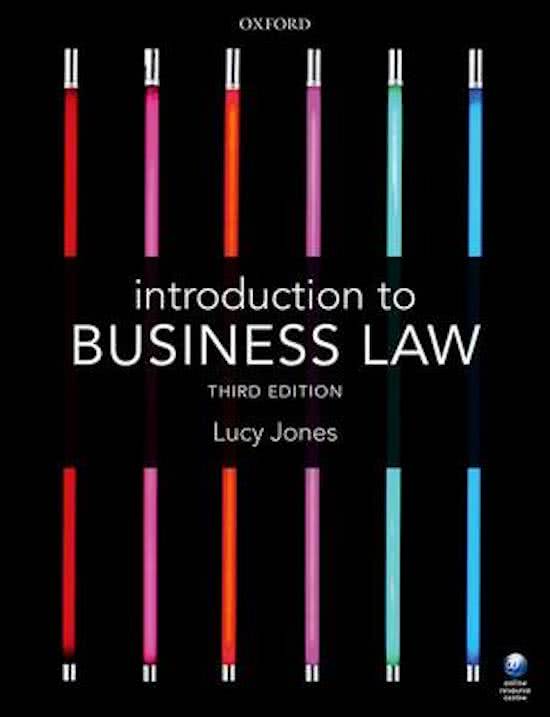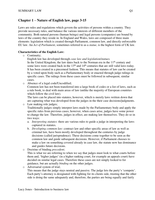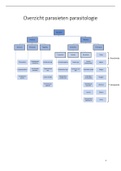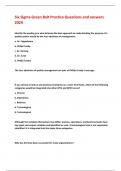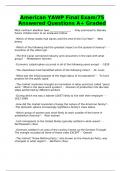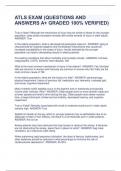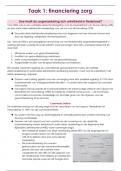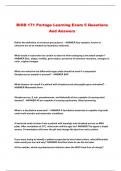Chapter 1 – Nature of English law, page 3-15
Laws are rules and regulations which govern the activities of persons within a country. They
provide necessary rules, and balance the various interests of different members of the
community. Both natural persons (human beings) and legal persons (companies) are bound by
laws of the country they reside in. In England and Wales, laws are composed of three main
elements: legislation which is created through Parliament, common law, and directly enforceable
EU law. An Act of Parliament, sometimes referred to as a statue, is the highest form of UK law.
Characteristics of the English Law:
o Continuity;
English law has developed through case law and legislation/statues.
In the United Kingdom, the law dates back to the Norman era in the 11th century and
some laws were created back in the 13th and 14th centuries that are still valid laws today.
It has been created in a piecemeal fashion. This means that statutes of law can be created
by a voted upon body such as a Parliamentary body or enacted through judge rulings in
specific cases. The rulings from these cases must be followed in subsequent, similar
cases.
o Absence of a legal code/Uncodified;
Common law has not been transferred into a large book of codes or a list of laws, such as
a rule book, to deal with main areas of law (unlike the majority of European countries
which follow the civil law).
The laws can be placed into statutes, however, which is merely laws written down that
are capturing what was developed from the judges in the their case decisions/judgments.
o Law making role judges;
Traditionally judges simply interpret laws made by the Parliamentary body and apply the
specific rules from previous cases; however, when cases arise, judges have some power
to change the law. Therefore, judges in effect, are making law themselves. They do so in
two ways:
a. Interpreting statutes: there are various rules to guide a judge in interpreting the laws
captured in statutes.
b. Developing common law: contract law and other specific areas of law as well as
criminal law, have been mostly developed throughout the centuries by judge
decisions (called jurisprudence). These decisions come together to be seen as the
common law and guide subsequent decisions. However, if Parliament chooses to
make a law on something covered already in case law, the statute now has dominance
and guides future decisions.
o Doctrine of binding precedent;
This is what we are referring to when we say that judges must look to what courts before
them and, ‘higher judges’ (in a higher ranking court, for example an appeals court) have
decided on similar legal cases. Therefore these cases are not simply looked to for
guidance, but are actually binding on the other judges.
o Adversarial system of trial;
This means that the judge stays neutral and passive. The judge lets the party’s ‘compete’.
Each party’s attorney is designated with fighting for its clients side, trusting that the other
side is doing the same adequately and, therefore, the parties are being equally and fairly
Lucy Jones - Introduction to business law
, SUMMARY LAW Q1
represented. The judge then plays a less active role and decides based on the arguments
given by the attorneys.
Common law is usually used to mean the law that is not the result of legislation but is the law
created by the decisions of the judges. An alternative meaning of the term common law is when
it is used to distinguish common law from equity, and refers to case law that has been developed
through the old Common Law Courts as opposed to the old Chancery Courts. Common Law is
found in such countries as the United Kingdom, Australia, Canada, South Africa, and the United
States. The “mother” country is the United Kingdom and the rest are the former colonies that
borrowed the UK laws to start their own legal systems.
The Civil law system is found in such countries as France, The Netherlands, Germany, Italy,
Spain, and in some form in their former colonies.
o Law Codes;
Unlike common law, the civil system drafts a series of rules/laws captured in book(s).
These serve as the basis of the legal system.
o Democratically drafted legislation;
The codes are created by the Parliamentary body who has been democratically elected by
the population to represent their concerns when creating or changing laws. These legal
codes change quite frequently compared to the common law system.
o Guiding case law;
The case law (the judge rendered decisions) are important guides for subsequent judges
to consider, but the judges in other cases are under no obligation to follow them or their
way of interpreting the codes.
o Non adversarial trial with an active judge;
The judge can take an active role in interviewing the witness, calling its own witness and
examining the evidence.
Common Law / Common Law Civil Law
Civil Law
• Continuity from old law • Law Codes
• Absence of a legal code • Democratically drafted
• Law-making role judges legislation
• Doctrine of binding precedent • Case law serves as a guide
• Adversarial system of trial but not binding
• Active Judge role in non-
Advantages adversarial trial
– Flexible
– Up to date Advantages
Disadvantages – Laws are made by a
– Power with non elected chosen body
judges – Easy to find
– Difficult to find Disadvantages
– Rigid
– Out of touch
Lucy Jones - Introduction to business law


